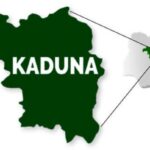Higher energy, reforms crucial – Experts
As electricity consumers in Nigeria worry about a trend in power system collapses with four already this year, the government and power sector operators are swiftly pushing out a novel approach expected to peg a 5,000 megawatts (MW) grid in the short term to curb this menace.
Daily Trust spoke with power experts, officials at the Generation Company (GenCo), the Transmission Company of Nigeria (TCN), the Nigerian Electricity Regulatory Commission (NERC) and obtained documents on how this policy could work and save an ailing power sector.
Why Nigeria’s system collapses often
In the business of the electricity market, there are three stability stages on the national grid system. It could be stable, marginally stable and unstable, said Engr Dahiru Ahmad, a senior official in a power substation.
In recent times, the national grid system has plunged into an emergency state, always causing alerts due to the liquidity crisis affecting power generation. Engr Ahmad said within this emergency state, TCN, which is the grid manager, has an enormous job of managing the high and low frequencies.
“Ordinarily, in a grid system like the US or UK, with high power generation, TCN won’t have this challenge because, as it is called in engineering parlance, stiffness is key. The more generators operating on a grid, the more stable the system will be. But for Nigeria, the reverse is the case,” he said.
According to EIA.gov, a US-energy tracker, at the end of 2021, the United States had 1,143,757MW total power generation capacity. Continuing, Ahmad said: “For instance, in the United States where the power generation is over 100,000MW, once generators or turbines of say 1,000MW stop working in a GenCo, it will not affect the grid but in Nigeria where the peak generation barely rises above 5,000MW, when 1,000MW drops from the Nigerian system, it is huge and can shake the system, which could cause a partial or total system collapse.
“TCN is not the power generator; it is only a transporter of electricity from the GenCos to the Distribution Companies (DisCos), and that means if the generated energy is low or high, TCN will evacuate same quantum to the DisCos for onward supply to the end-user consumers,” the system operations expert explained.
Shortly after June 12, 2022, when a national grid collapse threw Nigeria into a dark night, Engr Emmanuel Okon, a GenCo operator, stated that once the frequency monitor at the power plants, the transmission substations and the distribution substations show 50.5 hertz (Hz) and above, it means there is a high voltage and the grid can shut down if the DisCos fail to quickly increase power supply to consumers at that point.
The official also said if the frequency falls to 49Hz or below, it means the GenCos are not generating enough power to meet the demands. At this point, the grid will shake and fall into an emergency state. If you are in any of the GenCo, TCN or DisCo’s control rooms, you must hear the alarm going off, which puts staff on the alert for a likely collapse.
“What TCN does at its National Control Centre (NCC) Osogbo is to call more GenCos to generate. However, if these GenCos do not have enough gas, there is little or nothing TCN can do to avert the collapse; and if the voltage is high, TCN calls DisCos to take more loads and if they refuse or their network has issues, the system may crash; it is that delicate.
“So, the best thing is to have more GenCos operating and have DisCos with enough network capacity to supply electricity to consumers. And you cannot blame the GenCos if they don’t have enough funds from the electricity market to pay for gas,” said Engr Okon.
NERC to the rescue with contracting policy
Just on July 1, NERC said a major policy shift in the annals of Nigerian Electricity Supply Industry (NESI) happened. For the first time, the regulator moved to hold operators accountable by ensuring they signed performance contracts across the value chain.
NERC even went ahead to back a daring shakeup of five DisCos in what is described as the strongest bullet since the 2013 power sector privatisation in an illiquidity marred electricity market.
Speaking on these issues, an official of NERC confirmed the acute liquidity crisis, noting that it was the reason NERC came up with the contract-based electricity administration where the GenCos, the TCN and the DisCos are bound by contract and they must perform or face sanctions.
According to an implementation report on the new contract-based system of NERC, the average electricity assurance should be 5,000 megawatts hour (MWH). On the basis of this, there is none of the 11 DisCos that should have at least 70 percent of their grid allocation every day which is a guarantee to increase the power supply of the over 10 million registered electricity consumers in Nigeria. But the official noted that the 5,000MWH/H may not be achieved immediately just as he harped on enforcing a consistency template that will improve the performance to the set target.
On what the punishment for defaulters is, NERC had to activate the Business Continuity model to restructure the worst performing DisCos. While Fidelity Bank took over the management of Benin, Kaduna and Kano DisCos last week, NERC and the Bureau of Public Enterprise (BPE) restructured Ibadan and Port Harcourt DisCos. These five DisCos now have reformed boards and managements, expected to give a new lease of life to the utility firms in this dispensation.
On tackling liquidity worries of operators expressed shortly before signing the contract-based agreement that was activated on July 1, the regulator source said NERC was working with the CBN to draw from an emergency electricity stabilisation fund which will boost the DisCos’ revenue capacity to pay for monthly energy bills.
“The GenCos will now have more funds coming to them to increase gas supply to their power plants and improve energy generation for TCN to transmit. As it is now, TCN does not have a problem yet as it can wheel up to 5,000MW. The commission is also considering a spinning reserve mechanism for them which is part of the ongoing Transmission Expansion Master Plan they have been told to submit to NERC for approval,” the official noted.
He said the spinning reserve will ensure that there is a standby turbine at a GenCo, preferably one of the three hydropower plants so that in case of a frequency disturbance, that turbine can be called into the grid immediately to avoid a system collapse. However, the official noted that if the contract-based market operates according to plan, there will be no need for the spinning reserve as the grid will have at least 4,000MW or more every day.
More funds, higher energy can curb grid collapse – Experts
More experts have lent their support to what the government and operators can do to improve the working of the electricity sector.
According to the Convener, Nigerian Power Consumers Forum (NPCF), Mr Michael Okoh, who was reacting to the recent takeover of three DisCos and a shakeup of the others, since the intervention of the Central Bank of Nigeria (CBN) by escrowing the DisCos’ accounts, the management of these DisCos allegedly devised a way of under-declaring remittances.
He said they pay the sum assumed they allegedly collect every month from consumers into the CBN fund from which the CBN allows them to pay salaries and other expenses before they can now pay for the bulk energy supplied to them by the GenCos through the Nigerian Bulk Electricity Trading PLC (NBET).
Okoh said: “That is why they brazenly pay less than 40 per cent of the monthly energy bills from the GenCos and who knows if they get more than that from the consumers. That operation is good but it is not contract-based and so they have a window to under-declare whatever they collect from consumers. So, I believe that if NERC is strict with the contract-based electricity market, DisCos must be held responsible to pay the energy bills they get, and get sanctioned if they fail and they must give supply to consumers.”
Mr Okoh further absolved TCN of any blame saying the company can only be blamed for fragile network transmission if the system begins to collapse when electricity generation peaks from 5,000MW.
On the DisCos’ reforms, President, Nigerian Consumer Protection Network (NCPN), Kunle Olubiyo, said electricity consumers applaud the action taken by NERC and BPE but blamed the authorities for not doing a major review five years into the power sector privatisation.
“In the prevailing circumstances, we are on the same page with relevant stakeholders in the present efforts to clean up the mess and free the economy held by its jugular by the Non Performing Utilities (NPU),” said Olubiyo.
On his part, Prof. Yemi Oke, a power system specialist and prominent figure in the NESI, said 80% of the DisCos are technically insolvent, hence the problems of the power sector may continue.
He said, “We’re in a deep, serious crisis as far as the energy sector is concerned (petroleum, gas and power). All my points on power sector challenges remain matters of national imperative.”
Prof. Oke said if these issues are not tackled including a complete overhaul of the other DisCos beyond the five affected DisCos already, “We’ll continue to experience an average of five to six national grid system collapses per annum.”
There may be a yield so far of the policy. Analysis of grid data indicates that the grid is on a gradual recovery from the abysmal state it was a month ago after the major system collapse. From 3,000MW peak generation on July 1, the grid grew gradually to 4,102MW on July 8 before a slight decline to 3,992MW on Saturday.
As at Sunday, the grid system was around 3,908MW (6am) capacity with 21 GenCos operating and it is expected that this policy will help the over 10 million consumers to get a better guarantee of electricity to their homes and industries.

 Join Daily Trust WhatsApp Community For Quick Access To News and Happenings Around You.
Join Daily Trust WhatsApp Community For Quick Access To News and Happenings Around You.


